Forget expensive serums and elaborate skincare routines, these two young women achieved remarkable skin improvements through a surprisingly simple method: going to bed early every day.
Specifically, a Chinese student who previously struggled with dull skin and prominent dark circles decided to forgo cosmetics and costly treatments. Instead, she opted for a “schedule makeover,” committing to a bedtime of 11 PM or earlier each night. Initially, she didn’t notice significant changes, but when she compared photos taken almost a year apart, the transformation was evident: her skin tone evened out, appearing brighter, with dark circles nearly disappearing, and her face radiating vitality.
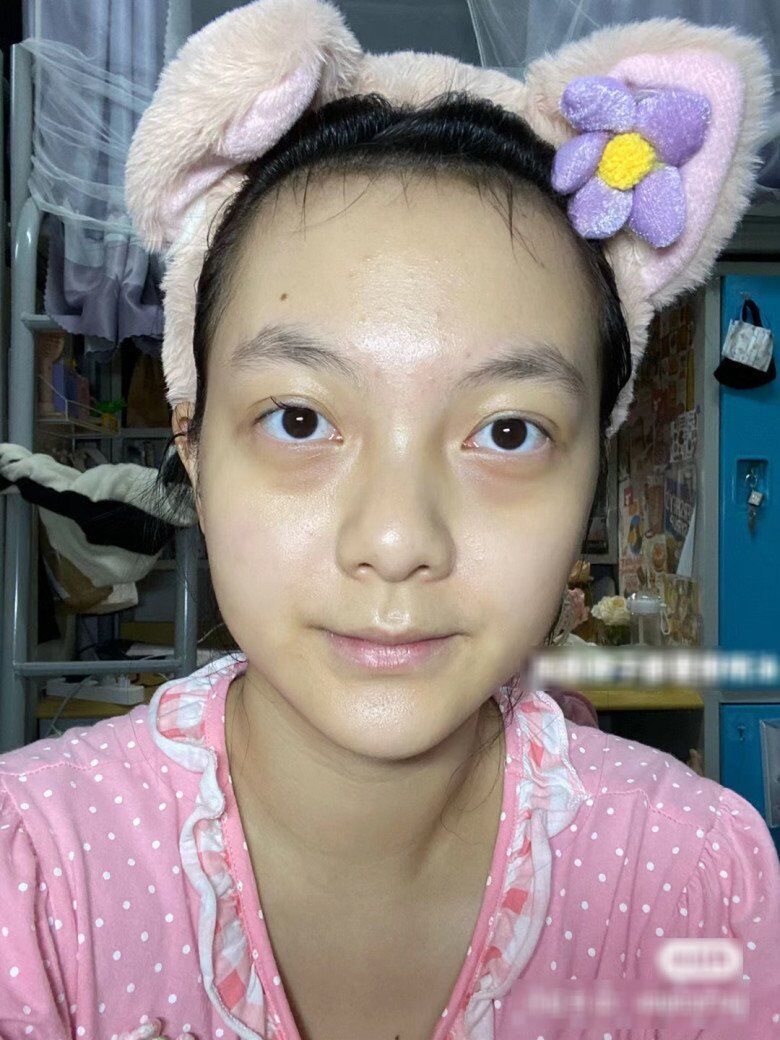
Prior to her “makeover,” the student’s skin appeared dull, particularly the noticeable dark circles under her eyes.

About a month into her new sleep routine, her skin started to show noticeable differences.
Throughout her journey, she consistently shared daily updates. After about a month, her skin began to “transform”: it became brighter, less dull, and more even-toned. After a year of maintaining her early bedtime habit, her skin not only looked pinker and more radiant, but the eye area – once her most significant concern – had improved by 90%.
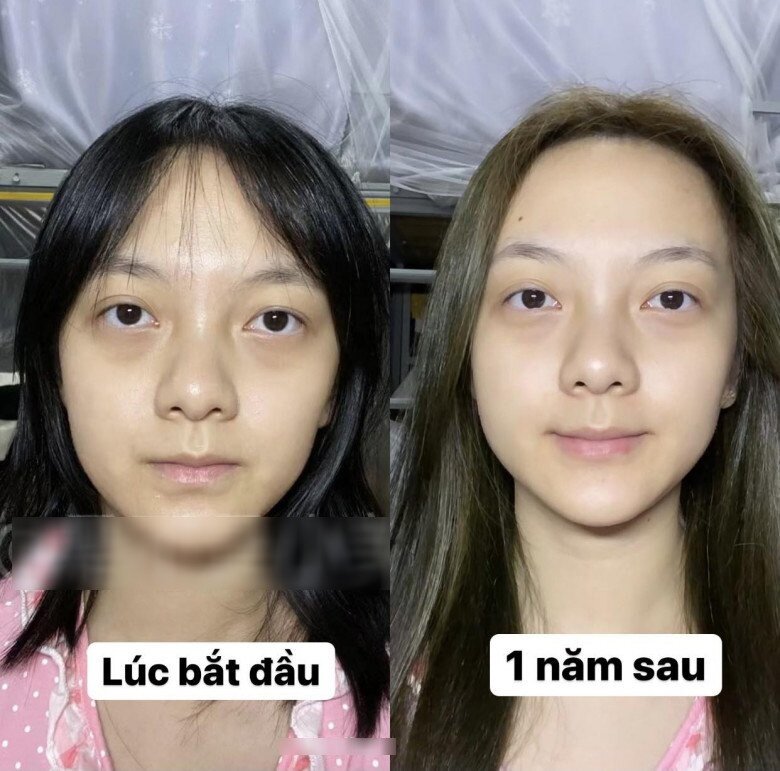
After a year of consistently going to bed early, her skin appeared brighter and more luminous, and the once-prominent dark circles had faded by nearly 90%.
In addition to her early bedtime routine, she also incorporated eye care into her regimen, using a specialized eye cream and gently massaging the area each night to improve blood circulation, resulting in a more vibrant and firmer eye contour.
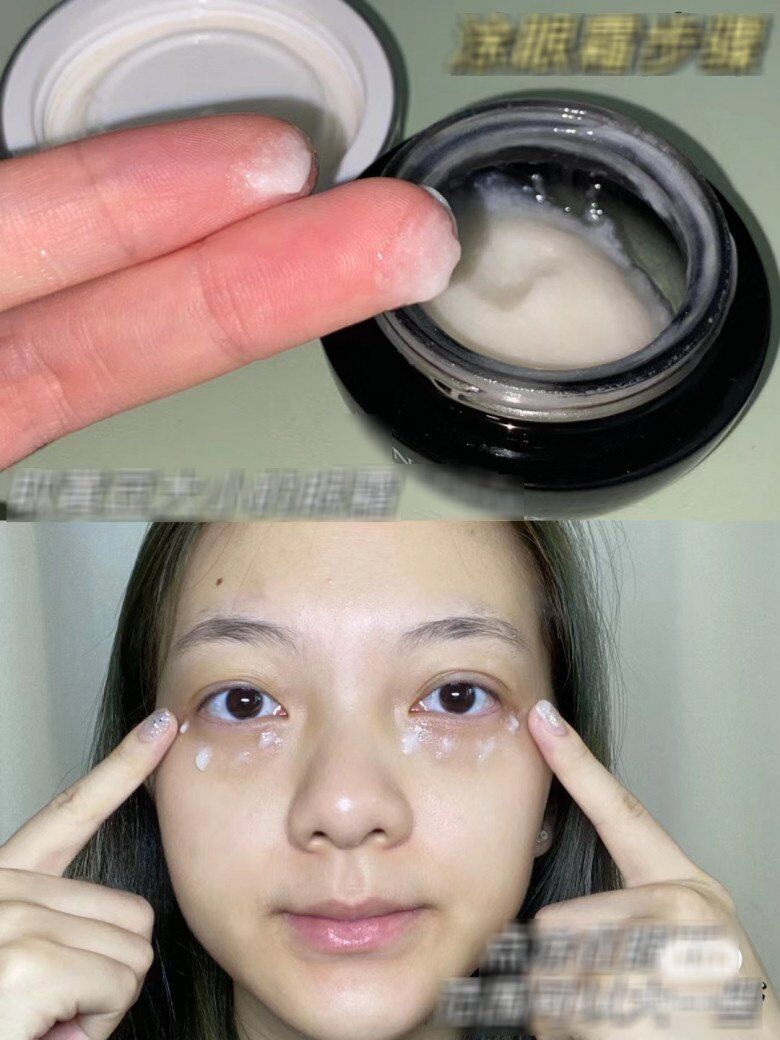
Along with early bedtime and adequate sleep, she also focused on eye care to reduce dark circles.
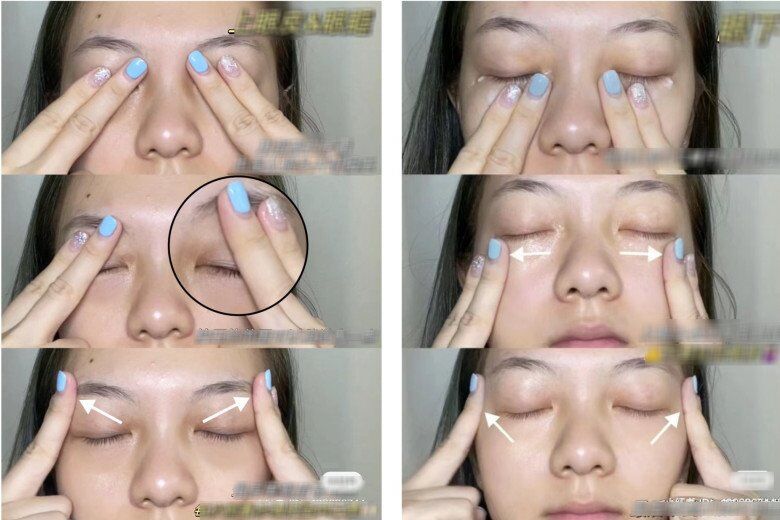
She also performed gentle massages to improve blood flow in the eye area, enhancing the skin’s radiance.
Specifically, a Chinese student decided to address her uneven skin tone and prominent dark circles without spending money on expensive products or complex routines. She shared her simple approach: ensuring she went to bed before 11 PM each night and maintaining a consistent sleep schedule.
Prior to her transformation, this student experienced uneven skin tone and noticeable dark circles. However, after just over a month of consistently going to bed early, waking up at a fixed time, and making positive lifestyle changes, her skin underwent a remarkable change. It became brighter and more radiant, with dark circles noticeably fading, and her overall appearance exuding a new vibrancy.
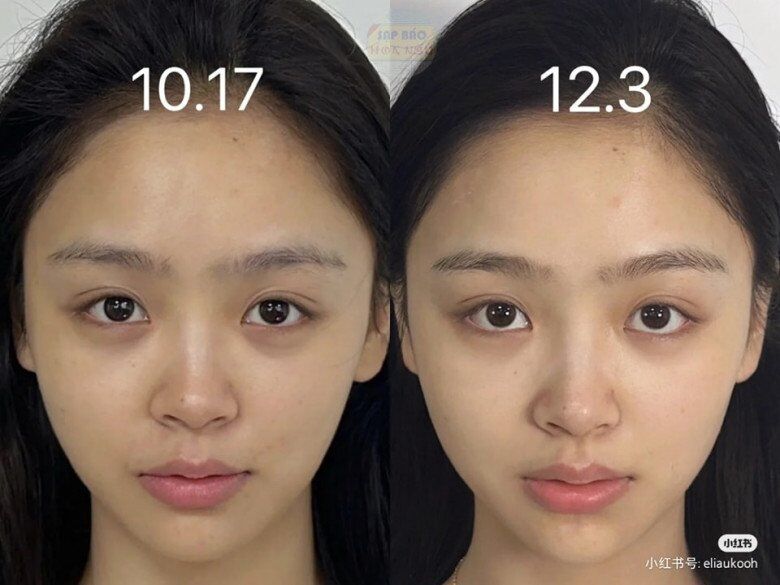
After a little over a month, her skin showed noticeable improvements, and the dark circles began to fade.
Sharing her secrets, she said: “What I did was very simple: I just went to bed early, ate healthily, and maintained good daily habits. I always went to bed at 10 PM and woke up at 8 AM. I also soaked my feet before sleeping and kept up with regular exercise.”
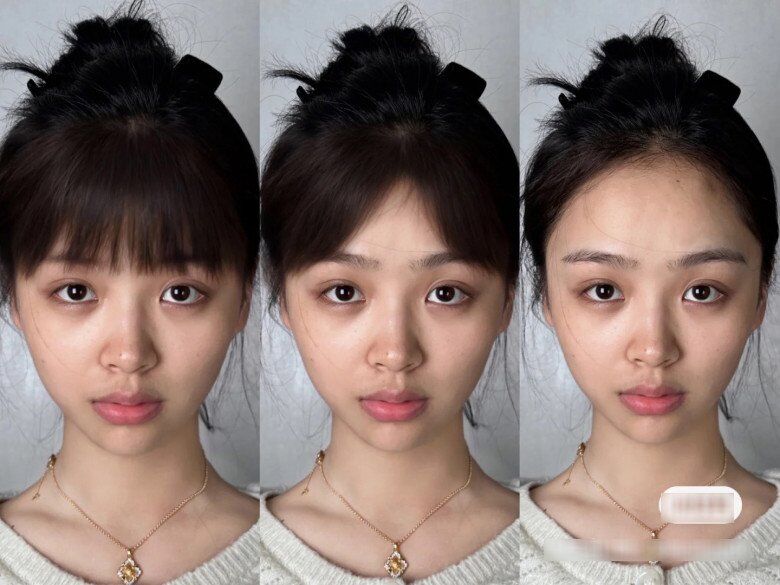
In addition to early bedtime, she focused on healthy eating and regular exercise.
She avoided greasy, overly salty, and sugary foods. Her daily menu consisted of home-cooked meals, fresh fruits and vegetables, nuts, and cherry tomatoes. After meals, she drank tea or water to detoxify her body. She also emphasized the importance of using sunscreen consistently to protect the skin.
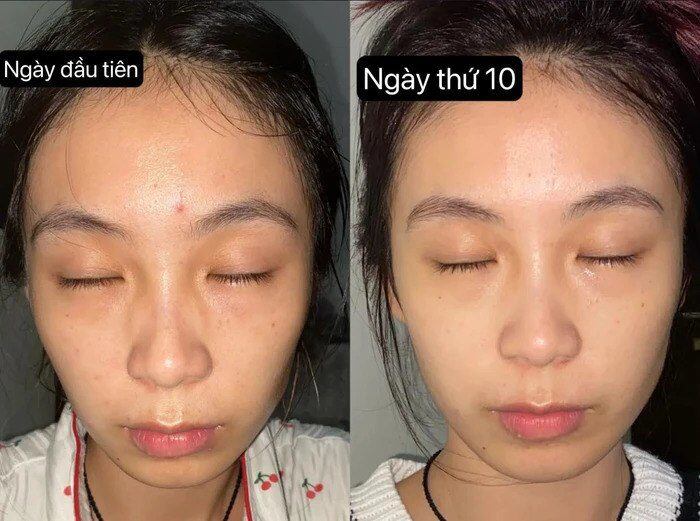
While she didn’t have many skin concerns, just 10 days of a scientific sleep routine made a noticeable difference, and her skin looked brighter and more radiant.
Lack of Sleep: The Unseen Culprit Behind Your Skin’s Decline
In reality, even if you use premium serums and eat a nutritious diet, insufficient sleep can lead to “dull and lifeless” skin. Worse still, prolonged sleep deprivation can trigger a host of common skin problems, as outlined below.
4 Serious Consequences of Long-Term Sleep Deprivation
1. Dull and Lifeless Skin
One of the most noticeable signs of sleep deprivation is dull and tired-looking skin. When the body doesn’t get enough rest, natural skin moisture and pH levels drop. Consequently, the skin becomes dry and produces more oil, resulting in a loss of its natural rosy glow.
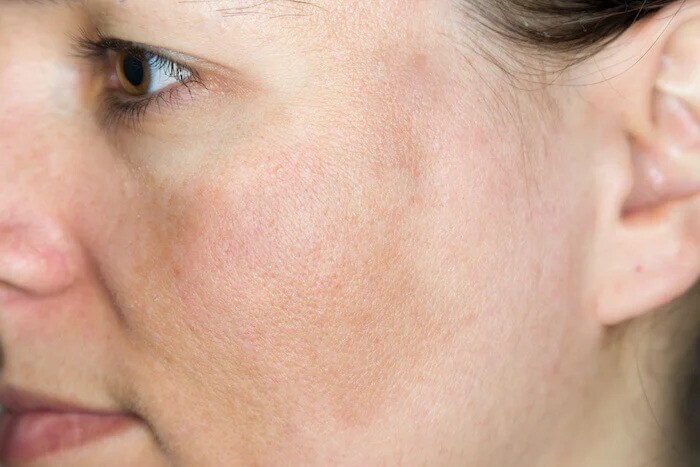
Sleep deprivation can lead to dull and lifeless skin.
2. Uncontrolled Acne Breakouts
You don’t need to eat spicy food or expose yourself to pollution to experience acne. Just a few nights of staying up late can trigger stress in your nervous system and increase cortisol (the stress hormone) levels in your body, creating the perfect environment for acne to thrive.
Additionally, when you’re sleep-deprived, your body’s anti-inflammatory response weakens, causing existing acne to worsen and take longer to heal.
3. Formation of Wrinkles and Premature Aging
Another insidious yet severe consequence of sleep deprivation is the early appearance of wrinkles. When you don’t get enough sleep, blood circulation slows down, causing your skin to lose elasticity and start sagging in areas like the corners of your eyes, mouth, and forehead.
Moreover, fatigue can lead to frequent squinting, frowning, and sleeping in awkward positions, further accelerating the formation of wrinkles.
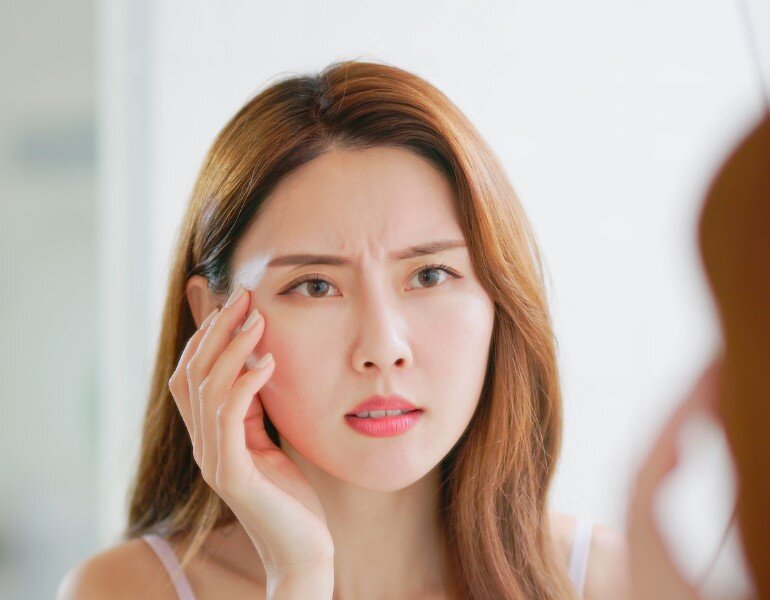
Lack of sleep can accelerate the aging process of your skin.
4. Slow Skin Recovery and Increased Sensitivity
During sleep, the body produces growth hormones that play a crucial role in cell regeneration, wound healing, and maintaining skin elasticity. However, when you don’t get enough sleep, your body doesn’t produce enough of this hormone, slowing down the skin’s recovery process.
This explains why acne scars and dark spots linger, and even minor irritations can turn into stubborn red patches if you don’t get sufficient sleep.
Is Sleeping with Wet Hair Bad for Your Health?
“Falling asleep with wet hair is a habit that many people don’t think twice about. However, this seemingly harmless routine can actually cause damage to your hair, scalp, and even your health. It’s time to uncover the potential hazards of this nightly ritual and explore why hitting the hay with damp locks may not be worth the risk.”



































